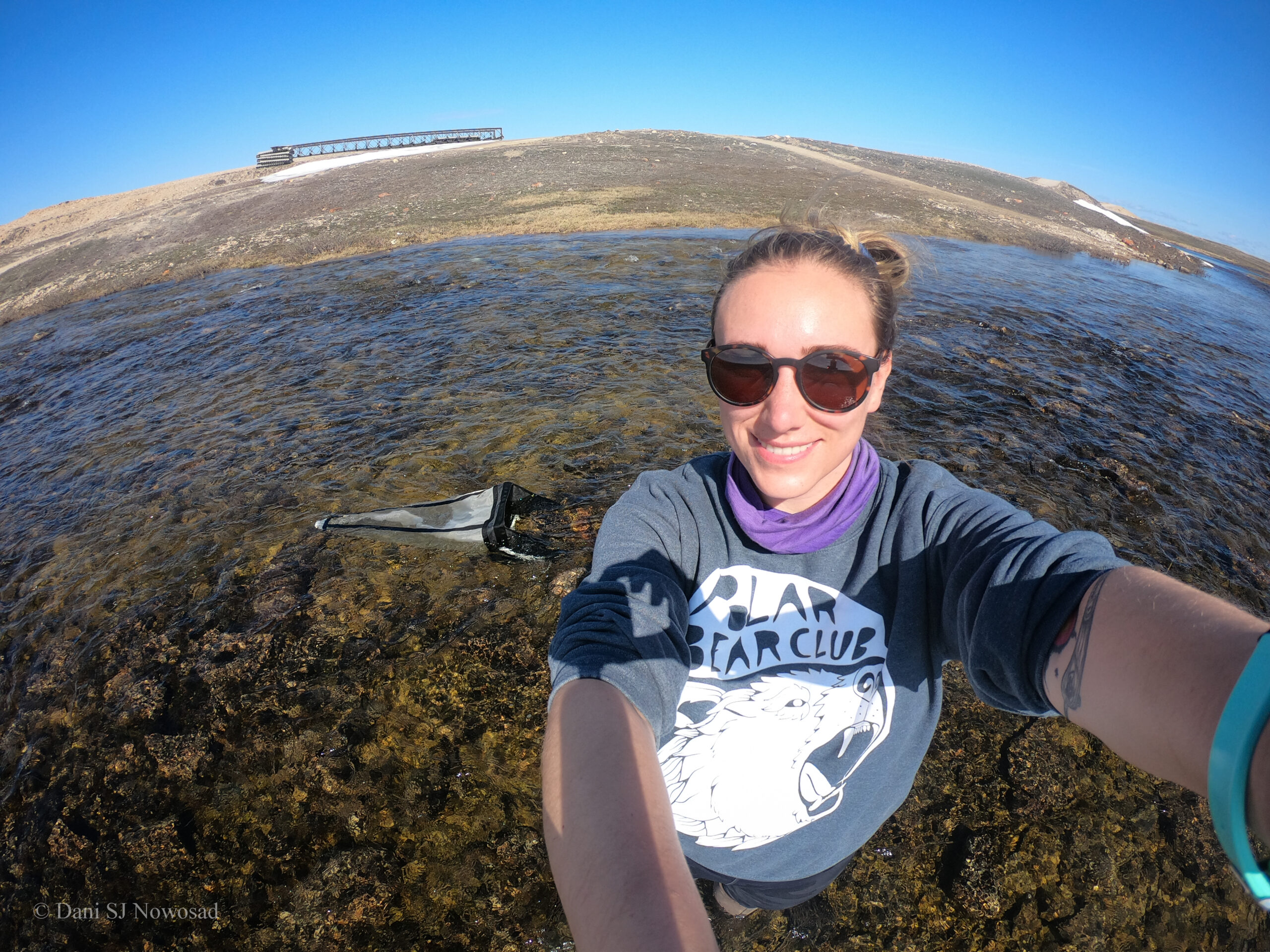By Joanne Garcia-Moores
When UofG graduate student Dani Nowosad (she/her) began her freshwater biology research in Nunavut in 2019, she was focused on collecting samples and doing lab work, but she soon noticed that something was missing.
“Initially, when I was doing my fieldwork, I didn’t have opportunities to speak with the community; to engage with youth; to teach on the land; or to share what I was learning, and I just started to feel increasingly uncomfortable and uneasy about that. Then I began reading outside my discipline and I started reading works by Inuit authors and Indigenous scholars and I slowly started to realize how the way I was working was upholding colonialism, and I began to question what my responsibilities are to these communities that I’m visiting as a guest.”
Dani’s research uses novel DNA methodologies to understand diversity of freshwater vertebrates, and more recently, to understand the increasing presence of black flies in the Arctic and the implications for local Inuit communities in the Kitikmeot region of Nunavut.
To uncover her responsibilities toward local communities she embarked on a journey to learn the principles and practices of Indigenous data sovereignty. First and foremost, Dani recognizes that Inuit are sovereign people and as an outside researcher, she is a guest on sovereign lands. She now understands that her positionality comes with responsibilities toward the communities she’s visiting as a guest.
Those responsibilities involve respecting Indigenous rights and Indigenous sovereignty through data and knowledge management strategies developed in collaboration with community partners. Dani notes that her Inuit partners aren’t stakeholders, they’re rights-holders. The partners decide together how to steward the data and ensure access for community partners to whom the data belongs. Furthermore, community partners helped shape Dani’s current research project, the Kitikmeot Biting Insect Monitoring program, which includes both the collection of physical insect specimens and DNA, and expert local and traditional knowledge through interviews with community members.
It takes patience and care to sort through the complex questions of how to manage each type of data so that partners have the access they require. Knowledge contributions must be respected and protected through proper consent and attribution protocols. Maintaining trust by protecting the interests and rights of the community as the research is conducted and disseminated is at the forefront of Dani’s work.
Dani is Red River Métis and German and born, raised, and living on Treaty 1 territory in Manitoba. She’s a PhD candidate in Integrative Biology at UofG now nearing the completion of her degree. To learn more details of how she created data management strategies intended to respect Indigenous data sovereignty, UofG staff, students, and faculty can view Dani’s recent webinar on this topic.
For additional guidance on how to conduct research that respects Indigenous rights and Indigenous data sovereignty, Dani suggests the OCAP principles, this 2020 article by Pedersen et al, and the Circumpolar Inuit Protocols for Equitable and Ethical Engagement.


